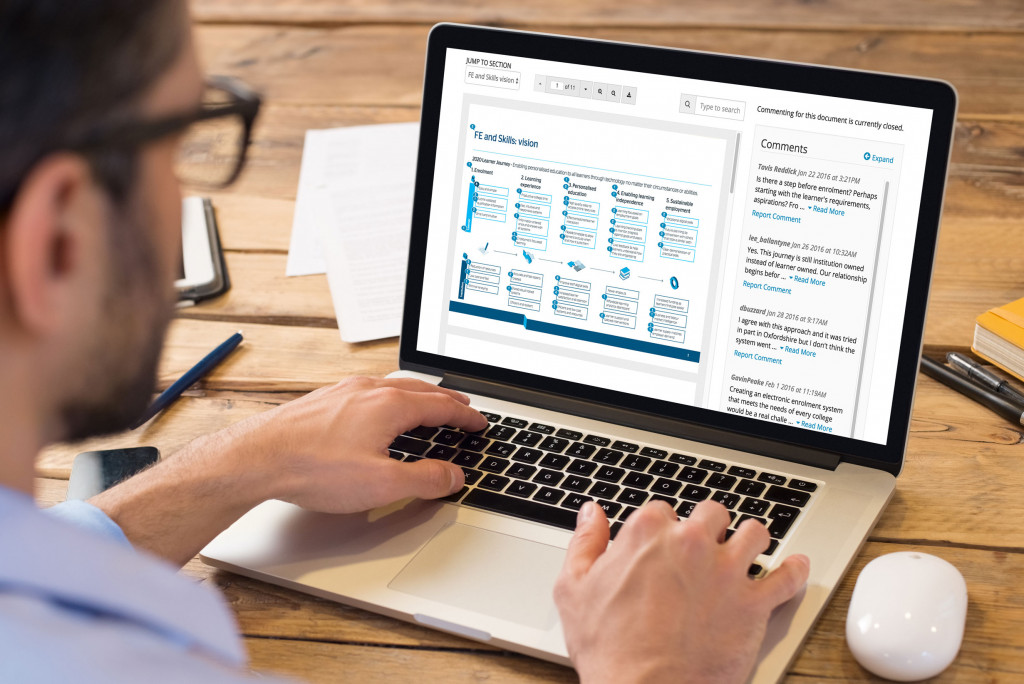Imagine your alarm goes off at 8:55 instead of 7 AM and you roll over, open up your laptop and start your work day in your pajamas. Sounds like the dream, right? In 2015, about 24 percent of employed people did some sort of variation of that. In fact, more people are turning to telework than ever before.![]()
As a millennial, you’ve probably thought once or twice about how great it would be to work from home. However, you may not have taken the step to initiate doing so because you don’t think your boss would go for it or you are unsure how it would work out.
Fortunately, First 5 is here to explain the pros and cons of working from home and give some tips on how to ask and how to get the most out of it.
Pros and Cons
Pro: Increased flexibility
Working from home allows you to create a work day that works for you. You can work when you are most productive and in an environment where you feel most comfortable.
Con: Too much unstructured time
It can be hard to focus when you can so easily turn on the TV and binge watch Law and Order. Before you decide to explore work from home options, have a serious soul searching session and decide if you are self-disciplined enough to get your work done out of an office setting.
Pro: No commute or distractions
As someone who utilizes the infamous DC Metro to commute every day, I am enamored with the idea of no commute. Not having to sit in traffic or on a stopped train saves a lot of time and money, giving you more time to focus on your work. Additionally, working from home eliminates the distractions that stem from chatty coworkers and the office environment.
Con: Relationships are harder to form
While the office chit chat can be distracting, it also helps us form bonds with our coworkers. You may find it lonely working at home without access to colleagues. Additionally, working from home can hinder your ability network, which is critically important for those new to the workforce. This can be remedied by staying in touch over email and instant messenger and making an effort to still attend office happy hours and events.
How to Ask for WFH
Asking to work from home is often the trickiest part of the whole telework experience for millennials. As individuals who are new to the workforce, it can sometimes be scary to approach your manager about something that is still a relatively new idea in the workforce. However, there are some ways you can ask to work from home that are more effective than others.
First, know how often you want to be able to work from home and ease into it. Maybe you want to be fully remote but if you are the only one in your office asking, this may pose an issue. Knowing the culture of your office can help you set realistic expectations for working from home. Start off small and build up to your goal.
Second, explain why you want to start working from home. The fact that you hate changing out of your pajamas is not a good reason. Your reasoning should include how you working from home benefits you, your manager, and the company. For example, working from home can be a huge benefit if you have a lot of off site meetings with clients. Make working from home a solution, not a problem.
Third, be prepared to reevaluate. If your manager grants you a trial work from home run, be ready for them to decide at the end that they would rather have you in the office. If this is the case, set up a time to talk with your manager to evaluate what worked and what didn’t and how you will proceed with work from home moving forward.
How to Get the Most out of WFH
Have a workspace that works for you. As appealing as working from bed all day sounds, you may need to have a more conventional workspace in your home to be most productive. If you have a desk at home, set it up so you are comfortable and ready to spend the day working. One GovLoop featured blogger suggests getting a good chair, desk, keyboard and monitor.
Set clear boundaries. When working from home, self-discipline goes both ways. If you’re like me, you may find yourself working more efficiently than you would in the office because the normal distractions of office life are eliminated and you don’t want to be perceived as slacking off while at home. However, you also have to establish clear hours you are going to be actively working and log off when you are done for the day. Many people who work from home are tempted to always be available, so be careful not to fall into this routine.
Understand how much you need to communicate. Some managers will be okay with checking in once in the morning and not talking for the rest of the day while others will want hourly check ins or to chat after you finish each assignment. Set up communication boundaries before you start working from home to avoid any miscommunications down the line.
Whether or not you’re ready to take the WFH plunge, these tips are good to have in your back pocket. Have some more work from home advice that we didn’t touch on? Be sure to include it in the comments!
This post is part of GovLoop’s millennial blog series, First 5.
